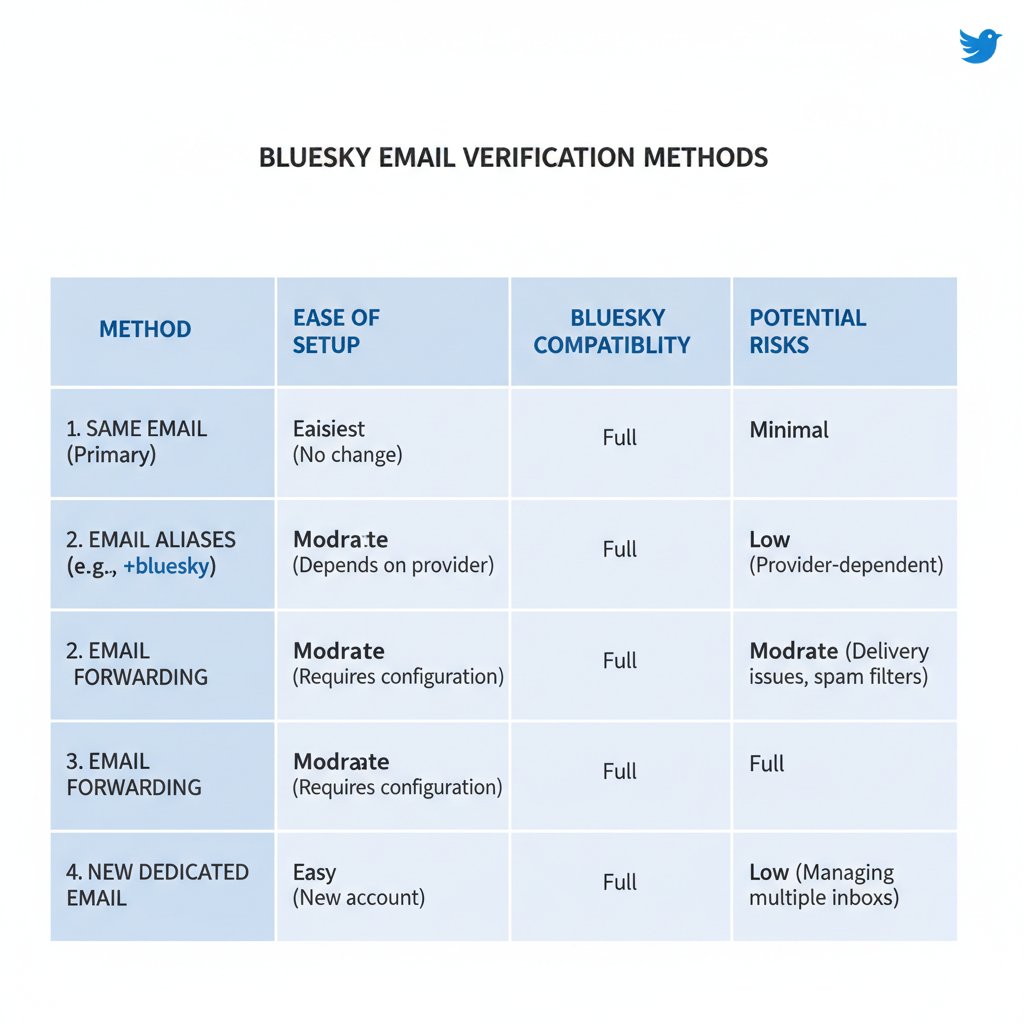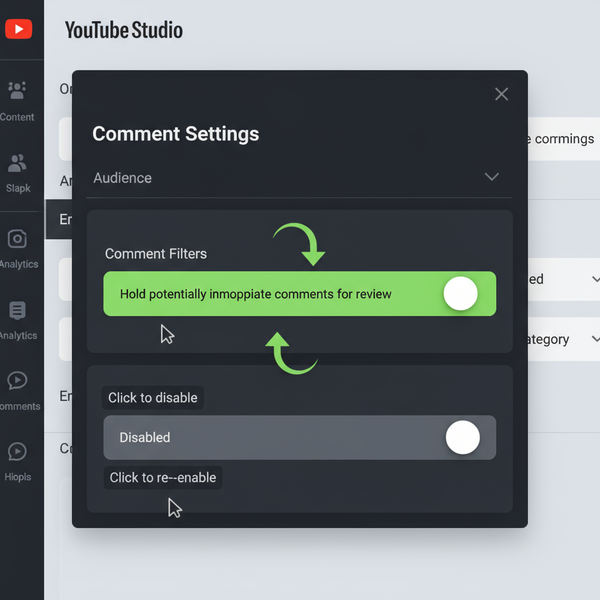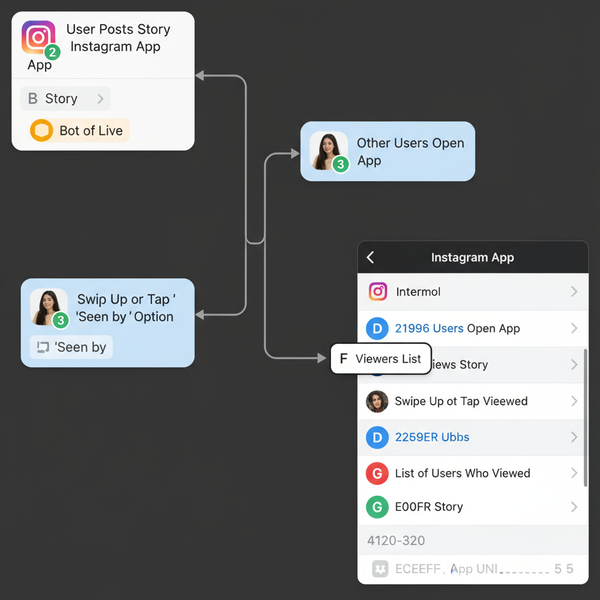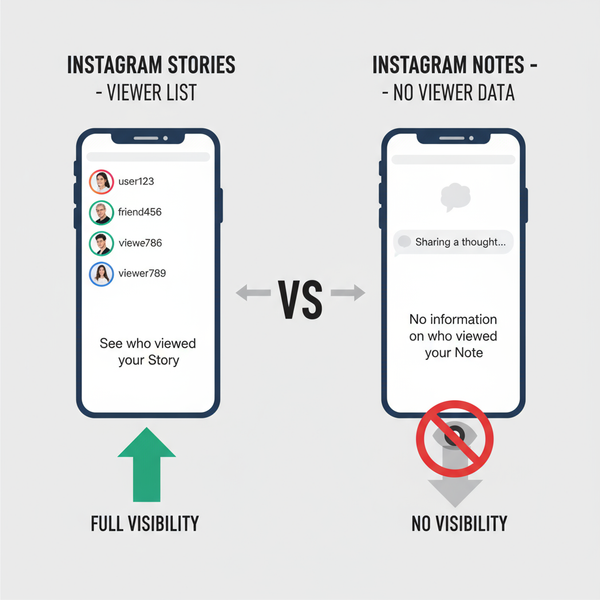Manage Bluesky Multiple Accounts With the Same Email
Learn Bluesky’s email rules, potential workarounds like aliases and forwarding, plus risks when managing multiple accounts under one email.

Introduction to Bluesky Multiple Accounts and Email Rules

Bluesky is a fast-growing decentralized social network built on the AT Protocol, offering users greater control over their digital identity and data. Unlike traditional centralized platforms, Bluesky emphasizes portability, privacy, and autonomy. This makes it popular among those who manage varied online personas—such as separate professional and personal accounts.
A common question for such users is: Can you manage Bluesky multiple accounts with the same email? Understanding Bluesky’s account creation rules, identity verification steps, and potential workarounds will help you stay compliant while optimizing your presence.

---
Bluesky’s Email and Identity Verification Process
Bluesky uses your email address for several critical purposes:
- Account Verification: Ensuring that new accounts are authentic.
- Password Recovery: Sending secure reset links.
- Service Communication: Delivering updates, alerts, and account-specific notifications.
When you sign up, Bluesky sends a verification link to your registered email. You must click it to activate your account, providing proof that the address is valid and accessible. Without completing verification, your profile remains inactive.

---
Limitations of Using the Same Email for Multiple Accounts
Most platforms restrict the use of a single email across multiple accounts to reduce confusion and prevent abuse. For Bluesky:
- Unique Email Requirement: An email is generally tied to one active account.
- Security Concerns: Password recovery and verification can become muddled if multiple accounts share the same email.
- Verification Conflicts: Overlapping email addresses may cause link overwriting or misrouting.
Bottom line: Always check Bluesky’s official Terms of Service before attempting to register multiple accounts with the same email.
---
Step-by-Step Guide to Creating Multiple Bluesky Accounts With One Email (If Allowed)
If Bluesky changes its policy to support multiple accounts per email, here’s a potential workflow:
- Log Out: Exit all sessions of the existing account.
- Go to Registration: Access Bluesky’s sign-up page.
- Enter the Same Email: Type in your existing address.
- Select a Unique Handle: Each account must have its own username.
- Verify: Respond to the verification email promptly.
> Note: As of now, Bluesky typically enforces a one-email-one-account rule. This guide assumes hypothetical approval for multi-account linking.
---
Alternative Methods: Email Aliases and Forwarding
If a single email per account is enforced, workarounds include:
Email Aliases
Some providers allow alias creation:
- Gmail: Add `+tag` after your name, e.g., `myemail+work@gmail.com`.
- Outlook: Configure aliases in settings.
- ProtonMail: Use “+” tags or domain-specific aliases.
Email Forwarding
Create distinct addresses that forward to a main inbox, registering each one separately.
| Method | Provider Example | Pros | Cons |
|---|---|---|---|
| Email Aliases | Gmail +tag | Simple setup, single inbox | May not bypass restrictions across all services |
| Forwarding | Domain-based email | Flexible identity control | Additional accounts to oversee |
| Disposable Email | TempMail | Fast setup, privacy protection | Unstable for long-term access |
---
Risks and Considerations
Managing Bluesky multiple accounts with the same email could trigger:
- Terms of Service Violations: Leading to warnings or bans.
- Linked Account Suspension: Compromise in one could jeopardize others.
- Security Risks: Shared credentials and recovery links increase vulnerability.
Always consult Bluesky’s documentation before implementing non-standard setups.
---
Managing Multiple Accounts Efficiently
If you operate multiple Bluesky accounts, streamline your workflow:
- App Switching: Look for account-add options within the mobile app.
- Browser Profiles: Separate logins via distinct browser profiles.
- Device Separation: Assign different accounts to specific devices.
## Chrome CLI example for a new profile
chrome --profile-directory="Profile 2"---
Privacy Tips for Distinct Personas
Keeping your identities distinct protects your branding and privacy:
- Unique Handles: Names that signal the account’s intended purpose.
- Different Profile Images: Avoid mistaken identity between accounts.
- Controlled Cross-Posting: Maintain unique content streams.
---
Organizing Notifications Across Accounts
To manage incoming alerts:
- Email Filters: Use rules to sort by recipient address.
- Adjust Push Alerts: Customize per account in mobile settings.
- Third-Party Management Tools: Consider multi-account dashboards when supported.
---
Troubleshooting Multiple Account Issues
Common issues and quick fixes include:
Duplicate Email Warnings
Create an alias to circumvent conflicts.
Missing Verification Email
Check spam, whitelist Bluesky’s domain, or resend.
Account Confusion
Use clear labels for each account in password managers.
---
Best Practices for Compliance and Clarity
- Document Accounts: Keep a secure list of handles, emails, and purposes.
- Monitor Policy Changes: Stay updated with Bluesky’s rules.
- Security Hygiene: Unique passwords per account, even if emails overlap.
---
Conclusion: Convenience vs. Compliance
While managing Bluesky multiple accounts with the same email may seem convenient, the risks and restrictions often outweigh the benefits. By leveraging aliases, forwarding, or distinct inbox strategies—combined with clear organization—you can enjoy the flexibility of multiple personas while respecting Bluesky’s policies.
Effective multi-account management hinges on security, compliance, and organization. Before experimenting, ensure your methods align with Bluesky’s terms, and use tools like browser profiles and notification filters to keep your social experience seamless.
Ready to get started? Audit your current setup, explore safe workarounds, and build a system that supports your goals without compromising your accounts.




